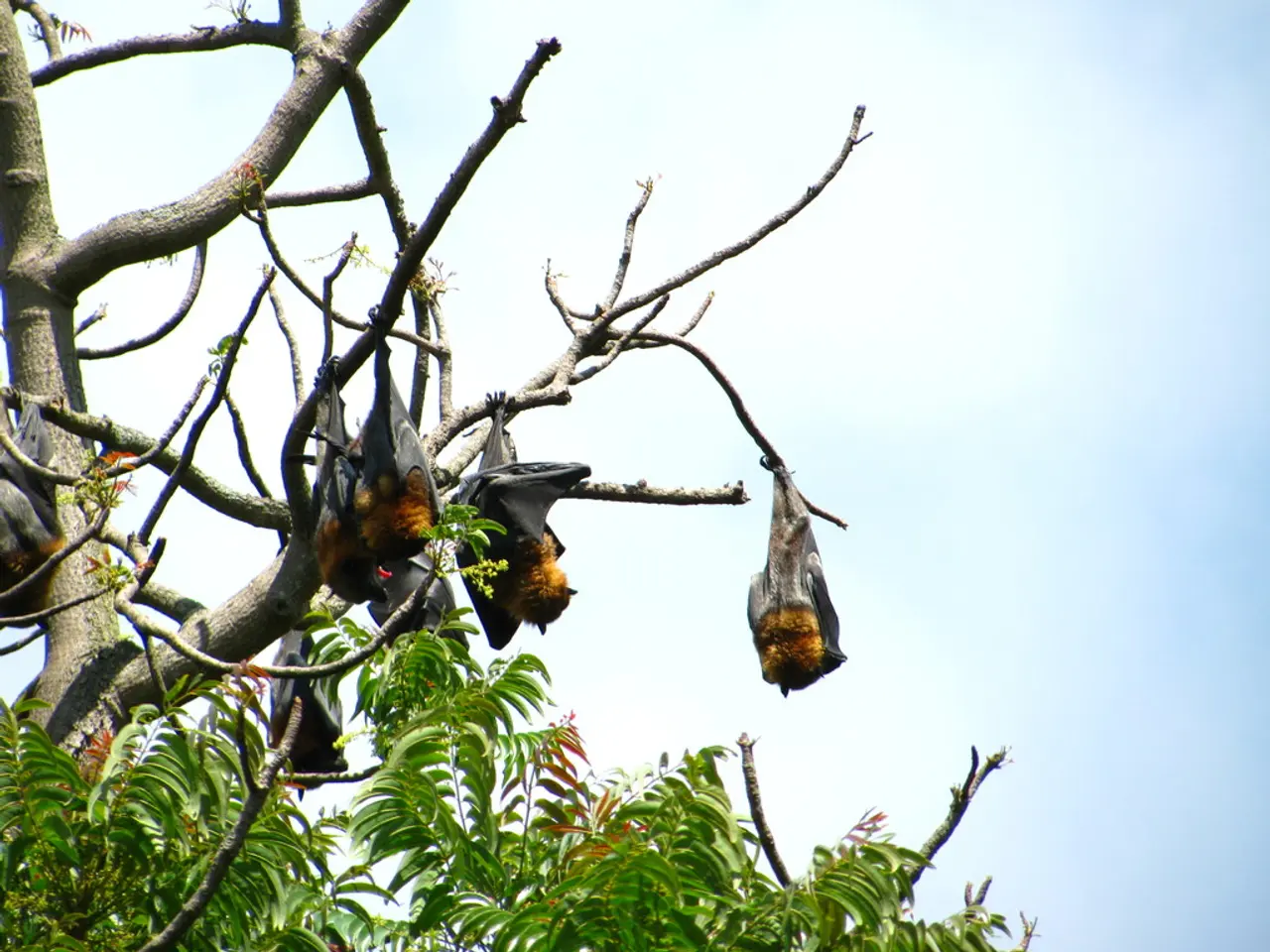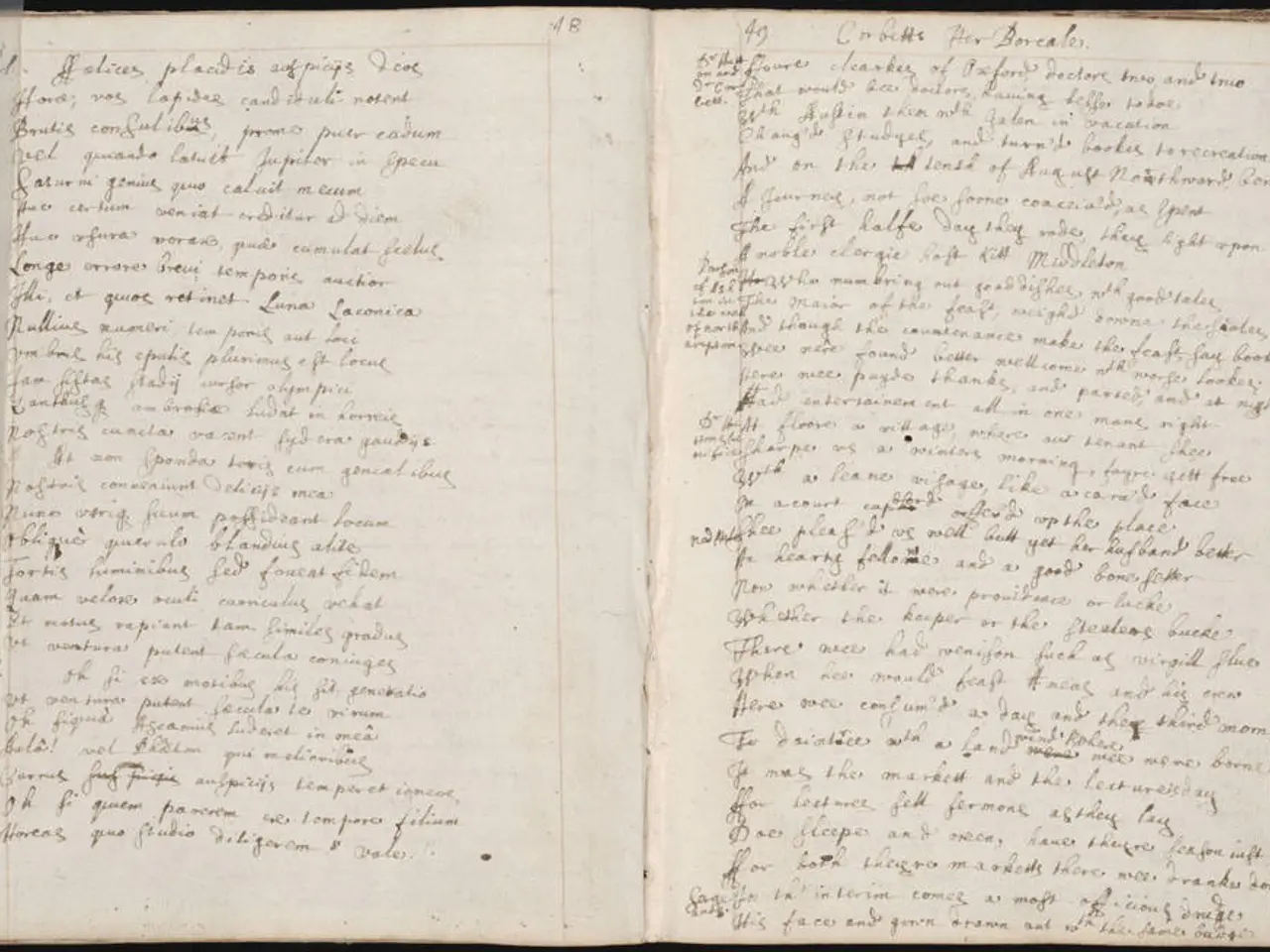Tornado composed of bats ravages a town, causing a tree to succumb to the invasion
In the picturesque town of Ingham, Far North Queensland, Australia, a unique and unexpected problem has arisen. Hundreds of thousands of fruit bats, colloquially known as flying foxes, have swarmed the town centre, outnumbering its 4,300 residents significantly. This swarming event, described as a "bat tornado" by one resident, has become a significant problem for the town.
The fruit bats, which are protected under Queensland law, have been living in the area for several years, but their population has increased significantly. These creatures, known for their large eyes and excellent vision, can weigh on average between 1 to 1.5 pounds (0.45 to 0.68 kilograms). While some fruit bats weigh as little as an ounce or two, others can weigh a couple of pounds. However, when they roost in large numbers, their combined weight can reach thousands of kilograms, potentially causing damage to trees.
The little red flying fox, a typical species found in Australia including Far North Queensland, usually weighs between 300 and 600 grams, with an average weight around 450 grams. Other flying fox species vary more widely in weight; some may weigh as little as 120 grams, while the larger species can weigh up to 1.6 kilograms. This roosting behaviour, coupled with their substantial numbers, can cause stress or damage to trees, especially if the bats' combined weight is substantial.
Some trees in the area are so full of bats that they're buckling under the weight. This phenomenon, known anecdotally in areas where large flying fox colonies gather, can lead to branch breakage or other impacts on tree health due to the sheer mass pressing on the limbs.
The town's Botanical Gardens have been completely overrun with the swarms, with trees showing visible signs of strain. The local council faces a challenge in dealing with the situation, as the fruit bats are protected under Queensland law, limiting their options.
While fruit bats play a crucial role in ecosystem functions like pollination and seed dispersal, their large roosts can sometimes lead to localized tree damage. The collective weight of these creatures, when concentrated in one area, can have a significant impact on the environment and infrastructure.
Despite their potential health risks, these fascinating creatures continue to call Ingham home, adding a unique twist to the town's daily life. The local community and council are working to find solutions that respect the bats' protected status while addressing the challenges they pose.
- The enormous swarm of fruit bats in Ingham, a phenomenon also observed in environmental-science studies, has been exerting pressure on the local ecosystem, primarily impacting the health and structural integrity of trees.
- As the fruit bats, crucial for the pollination and seed dispersal process in the environment, continue to reside in the town of Ingham, their collective weight in large numbers, a topic of interest in varying scientific fields, significantly influences the weather patterns by causing tree damage and potentially leading to further environmental concerns.








